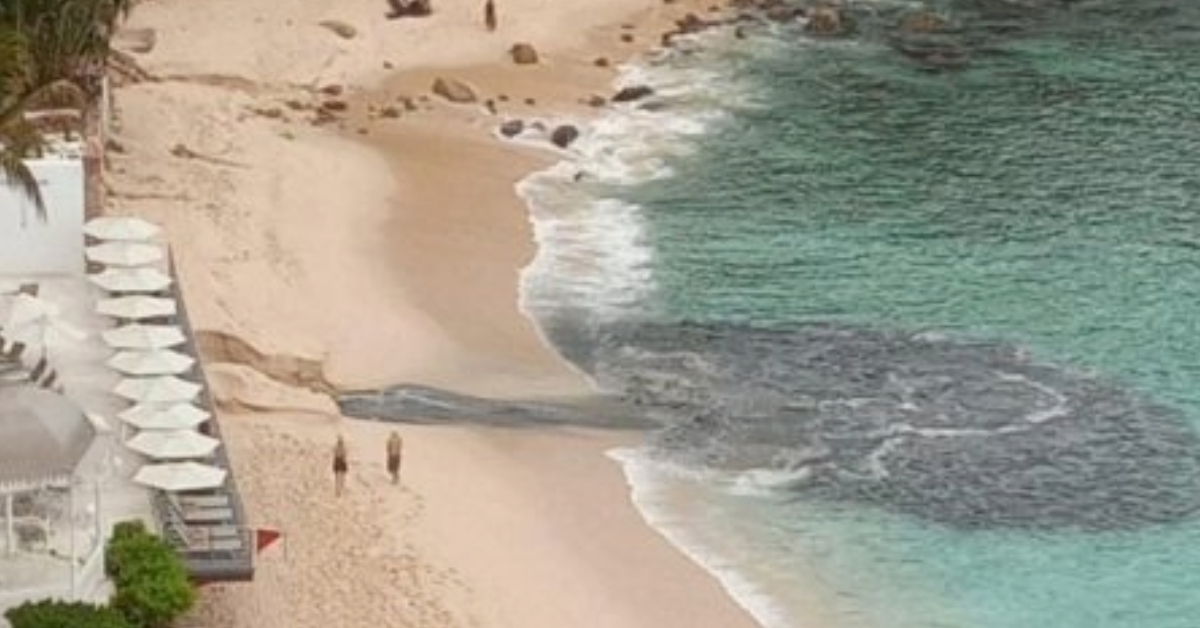Puerto Vallarta, Mexico — The recent detection of untreated wastewater being discharged onto the beaches of Puerto Vallarta, notably in areas such as in front of the Grand Park Royal hotel, has ignited serious concerns regarding environmental damage and public health risks. Local residents and environmental organizations are voicing alarm over the impact on marine ecosystems and the potential hazards to beachgoers.
These discharges are not only harmful but also illegal under Mexican environmental laws. Article 416 of the Federal Penal Code classifies the release of untreated wastewater, chemicals, or pollutants into federal water bodies as an environmental crime. Offenders can face imprisonment ranging from one to nine years and fines between 300 to 3,000 days of minimum wage, with increased penalties if the violation occurs within protected natural areas.
Further reinforcing the legal framework, the General Law on Ecological Balance and Environmental Protection and the National Water Law mandate strict obligations to prevent and control pollution. Compliance with the official standard NOM-001-SEMARNAT-2021 is mandatory, setting maximum permissible limits for pollutants in wastewater discharges and promoting stricter standards like temperature reduction and toxicity measurements.
Responsibility for monitoring and enforcing these regulations falls to authorities such as the Federal Attorney for Environmental Protection (Profepa) and the National Water Commission (Conagua). However, Profepa has historically faced challenges due to limited inspection personnel, particularly in handling the numerous complaints arising in regions like Banderas Bay.
Reports of sewage discharge are frequent in the southern parts of the bay, including areas around Centro, Conchas Chinas, Amapas, and other hillside neighborhoods. Residents have observed leaks of grey or black water, sometimes manifesting as small jets and other times in larger quantities.
Environmental groups and community members are demanding stricter enforcement of environmental laws and the development of adequate wastewater treatment infrastructure. They emphasize that the beaches and marine biodiversity are crucial for tourism and the local economy, and their degradation poses a direct threat to the well-being of the community.
Civil society organizations are also calling for public awareness campaigns and increased investment to modernize sanitation systems. They argue that immediate attention to this issue is essential, not only for legal compliance but also to ensure a sustainable future for Puerto Vallarta and its residents.
Addressing this problem requires coordinated efforts across federal, state, and municipal governments, as stipulated by the General Law on Ecological Balance. The hope is that through collective action, the natural beauty and ecological health of Puerto Vallarta’s beaches can be preserved for generations to come.
Puerto Vallarta, Mexico — The recent detection of untreated wastewater being discharged onto the beaches of Puerto Vallarta, notably in areas such as in front of the Grand Park Royal hotel, has ignited serious concerns regarding environmental damage and public health risks. Local residents and environmental organizations are voicing alarm over the impact on marine ecosystems and the potential hazards to beachgoers.












